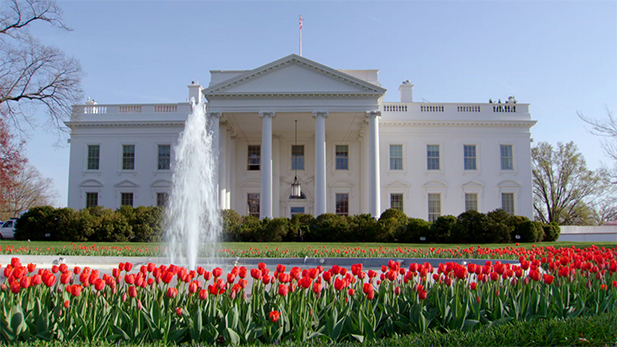
In state capitals across the country Monday, members of the Electoral College will cast their votes for president of the United States.
Although more Americans voted for Democrat Hillary Clinton, Republican Donald Trump is expected to win, because he won states with more electors.
Some Arizona lawmakers have debated changing that system, although it’s not likely to happen soon.
The reason? Arizona has long been considered “fly-over country," meaning one of those states that presidential candidates usually ignore, because they reliably vote with one party or the other. The voters in those states, and the issues they care about, have little impact on the nationwide race.
“And so what happens is we get ignored," Arizona House Speaker-elect J.D. Mesnard, told the state House Elections Committee 10 months ago. "In fact most Western states get ignored, which is probably why immigration is not a bigger issue among our candidates running for president.”
That is why Mesnard at the time was pushing for the Legislature to vote to join the National Popular Vote Compact.
Currently, Arizona casts all of its 11 electoral votes for the candidate that wins the most votes in the state election. That’s how most states do it. States that sign on to the proposed compact would cast all their electoral votes for the nationwide winner instead of the winner in their state.
Supporters, like former California lawmaker Ray Haynes, said it will force presidential candidates to stop focusing exclusively on Florida, Ohio and other battleground states.
"Arizona's issues are ignored because Arizona’s voters don't matter and Arizona voters don't matter because of Arizona's winner-take-all rule," Haynes said. "The question for you as a state legislator is why would you preserve a law here in Arizona that maximizes the influence of Ohio, Virginia and Florida in the selection of the president?”
The compact would take effect only if states with at least 270 electoral votes sign on to it. So far, it has been approved by 11 states with 165 electoral votes, including two of the three largest, California and New York.
In February the compact drew scant opposition in its hearing in the Arizona House. One witness, James Pinkerman, opposed it because, he said, electors should be free to vote for whomever they want.
"Leave this alone, and in fact we should be going the other way, where we are leaving them free to vote for whomever they think," Pinkerman said. "That's the spirit of and the intent of the founding fathers for all of you constitutionalists.”
In the end the House committee approved the compact, and the whole House passed it with broad bipartisan support. But it landed in the Senate in the closing days of the session and died without a vote.
Fast forward 10 months, and Donald Trump is now the president-elect despite losing the popular vote.
Is the Republican Mesnard eager to revive the National Popular Vote Compact? Not exactly.
“The argument for it would get caught up in the other argument, which is this idea of abolishing the Electoral College altogether," he said. "To be frank I am very, very, supportive of the rights of states to determine how to allocate their electors, which is what my bill was about. I would never propose to abolish the Electoral College, and so there's no way in my view to separate those two at this point."
Mesnard didn’t add, but is no doubt aware, that if the compact were in effect now, all of Arizona’s electoral votes would go to Hillary Clinton. That’s not an argument that would win many Republican votes in the Legislature.
The group behind the compact, National Popular Vote Inc., continues to campaign for its approval, and continues to tout the fact that it won in the heavily Republican Arizona House last session, although that vote is unlikely to be repeated soon. Spokesman Patrick Rosenstiel said the group is focusing on the long game
“We defer to our sponsors to determine timing and when the environment is right to move the bill, but we have not seen anybody fall off in terms of their support, and we believe that pressure, over time, National Popular Vote will be enacted by enough legislators to take effect," Rosenstiel said.
As the 2016 election continues to draw criticism, especially in light of Hillary Clinton’s popular-vote victory and allegations of foreign interference, supporters of the National Popular Vote compact said they hope lawmakers keep their minds open to alternatives, including the one they’re promoting.

By submitting your comments, you hereby give AZPM the right to post your comments and potentially use them in any other form of media operated by this institution.